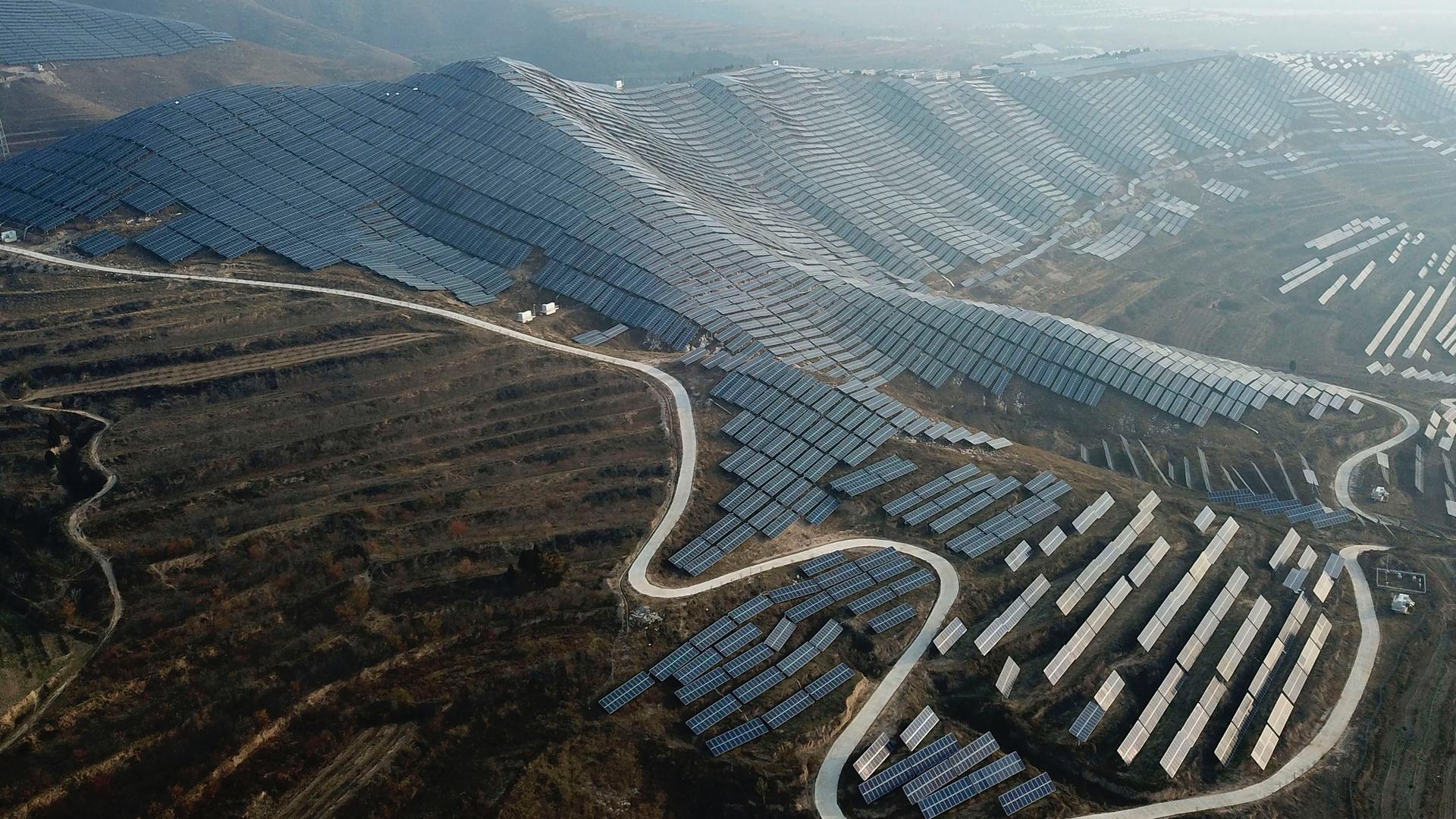China is the biggest greenhouse gas emitter in the world. But it’s also at the forefront of renewable energy innovation and has some of the world’s largest conservation projects.
Beijing is trying to reach net-zero carbon emissions by the year 2060. That means contributing no additional greenhouse gases to the atmosphere.
Yifei Li is an environmental researcher at New York University Shanghai and a co-author of the recent book, “China Goes Green: Coercive Environmentalism for a Troubled Planet,” with environmental policy researcher Judith Shapiro. He speaks to The World’s host Marco Werman about the downfalls of authoritarian environmentalism, and why the people and the environment win when the Chinese government opens up to collaborations with local people.
Related: China’s Arctic ambitions have revived US interest in the region
Marco Werman: How would you describe what’s at the heart of the Chinese government’s vision and goals for 2060?
Yifei Li: The Chinese government is seeing and using this term “ecological civilization” as a national strategy, and they’re doing this to really describe the Chinese Communist Party as an actor that tries to restore China back to its former glory. So, the official history that the Communist Party has been teaching its people and has been peddling in official historiography is that China had a glorious past. And it’s not just any kind of glory, not just any kind of civilizational leader. The Chinese Communist Party sees itself as building a uniquely ecological kind of civilizational leadership for the world.
Related: China’s road to ‘carbon neutral’
Ecological civilization does sound like a noble goal. But you also describe China’s green ambitions as coercive environmentalism. Explain that.
The idea being that if the goal of environmental protection is noble enough and important enough, then perhaps we can use that goal to justify the means of authoritarianism. In other words, using authoritarian approaches to accomplish environmental protection goes. What the Chinese government seems to be doing systematically at home and overseas is using environmental protection to accomplish authoritarian ends.
Related: China, top global emitter, aims to go carbon-neutral by 2060
Right. Well, in your book, to get specific, you describe how the Chinese government has used the pretense of environmentalism to exert control over communities. Give us some examples of that.
Very much so. We’re seeing the Chinese government using, for example, facial recognition technologies to control how citizens sort their garbage and recycle. Under the pretense of a national park initiative or conservation program, they are systematically relocating ethnic minority groups to create new national parks. On what China calls the Belt and Road Initiative, the Chinese government is pursuing a lot of government-to-government deals, once again in the name of environmental protection. But these projects turn out to be categorically insensitive to dissenting voices. We’re seeing the Chinese government using environmental protection as a reason to intensify trade manipulation.
So, does this model work either in service to the environment or to human or civil rights?
The success of China’s brand of state-led environmentalism doesn’t depend on a strong state. And in fact, the success depends on mechanisms that place Chinese state power in check. We see successful moments of Chinese coercive environmentalism when the state is open to public complaints from all sorts of non-state channels. To give you an example, the Chinese government developed this interesting app, which everybody can download, that’s called Black and Smelly Waters. Now, through this app, the local authorities are getting input from the public. When they see a polluted body of water, they snap a picture and send them to the government through this app and the government then sends their inspectors. What really can help the Chinese government achieve long-term environmental success is opening up the Chinese state to inputs from various walks of society.
And what about the downside of of civil rights with this model?
We’ve seen examples such as hydrological departments where large scale hydropower dams are put in place without fully consulting the various communities whose lives are affected. And when these projects go ahead, they not only have very substantial human costs, in fact, they turn out to have very significant environmental damages over the long-run, as well.
China is the biggest emitter of greenhouse gases in the world. They also have one of the most ambitious plans to go carbon neutral in the world, aiming to reach net zero emissions, as I said, by 2060. How do you think the government ultimately plans to get there? Will the policy continue to revolve around a government that remains insular?
There seems to be a very strong emphasis that China will continue to develop its carbon cap and trade mechanism domestically. That is a worrying sign. The Chinese government essentially has granted itself or will grant itself sweeping power in determining who will have these allowable emission credits that’s assigned to them. Every business … will have some sort of a carbon footprint. I just don’t know what kind of allocation mechanism will be the most equitable one. And if that mechanism is completely dictated by the Chinese government, there will be some more consequences down the road — whether we like it or not.
Will the rest of the world, in the years going forward, be essentially following in China’s environmental footsteps — its policy — simply by virtue of the massive scale China presents?
A lot of the things that China has been doing are indeed environmentally beneficial, at least in the short-term. But I don’t think we’re in a position to make environmental gains by paying social and cultural costs of these environmental programs. This is an opportunity for the whole world to come together to better deliberate what really is the kind of future that we want.
This interview was edited and condensed for clarity.
